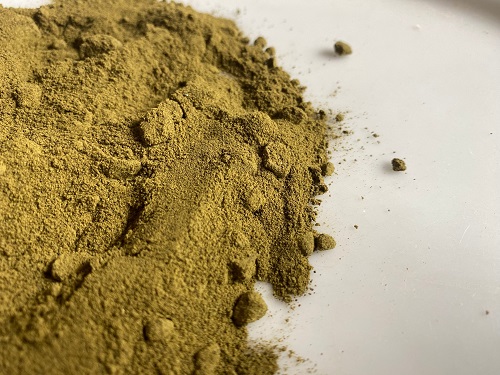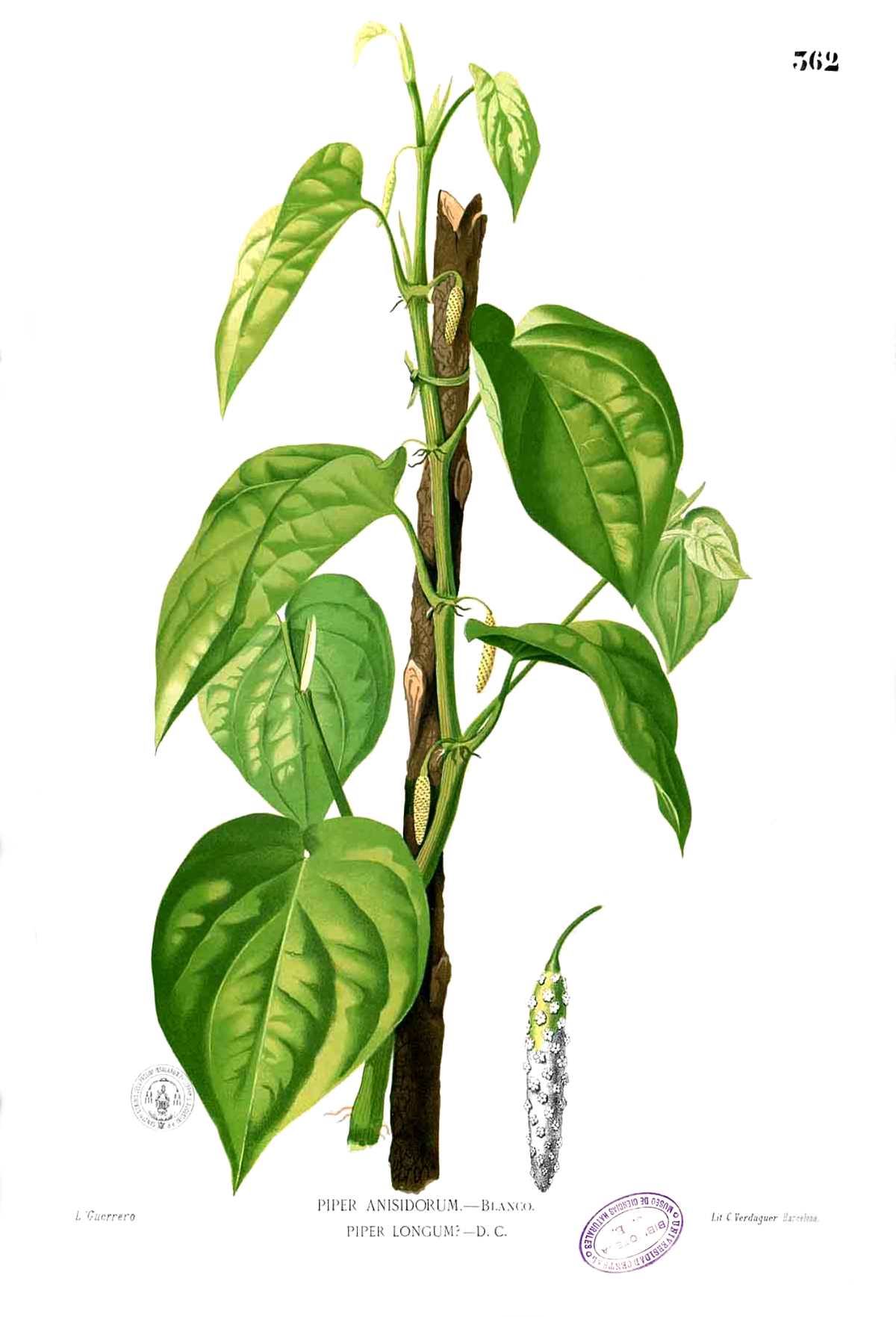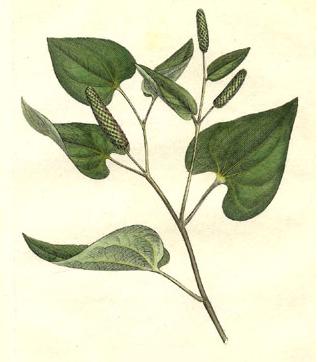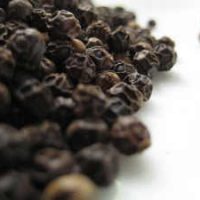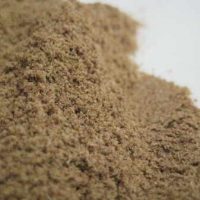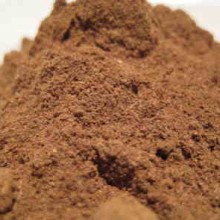Long pepper (Piper longum) is a flowering vine in the family Piperaceae, cultivated for its fruit, which is usually dried and used as a spice and seasoning.
Long pepper is a close relative of Piper nigrum giving black, green and white pepper, and has a similar, though generally hotter, taste. The word pepper itself is derived from the Sanskrit word for long pepper, pippali.
The fruit of the pepper consists of many minuscule fruits each about the size of a poppy seed embedded in the surface of a flower spike that closely resembles a hazel tree catkin. The fruits contain the alkaloid piperine, which contributes to their pungency. Another species of pepper, Piper retrofractum, is native to Java, Indonesia.
Today, Piper longum is an extremely rare ingredient in European cuisines, but it can still be found in Indian vegetable pickles, some North African spice mixtures, and in Indonesian and Malaysian cooking.
History of Pepper:-
Piper longum reached Greece in the fifth or sixth century BCE, though Hippocrates,the first writer to mention it, discussed it as a medicament rather than a spice. Amongst the Greeks and Romans and prior to the European discovery of the New World, Pepper was an important and well-known spice.
The ancient history of black pepper is often interlinked with (and confused with) that of long pepper, though Theophrastus distinguished the two in the first work of botany.
The Romans knew of both and often referred to either as just piper; Pliny erroneously believed that dried black pepper and Piper longum came from the same plant. Round, or black pepper began to compete with long pepper in Europe from the twelfth century and had displaced it by the fourteenth.
The quest for cheaper and more dependable sources of black pepper fueled the Age of Discoveries; only after the discovery of the New World and of chilli pepper, called by the Spanish, pimiento, employing their word for long pepper, did the popularity of long pepper fade away. Chilli peppers, some of which, when dried, are similar in shape and taste to long pepper, were easier to grow in a variety of locations more convenient to Europe. Today long pepper is a rarity in general commerce.

